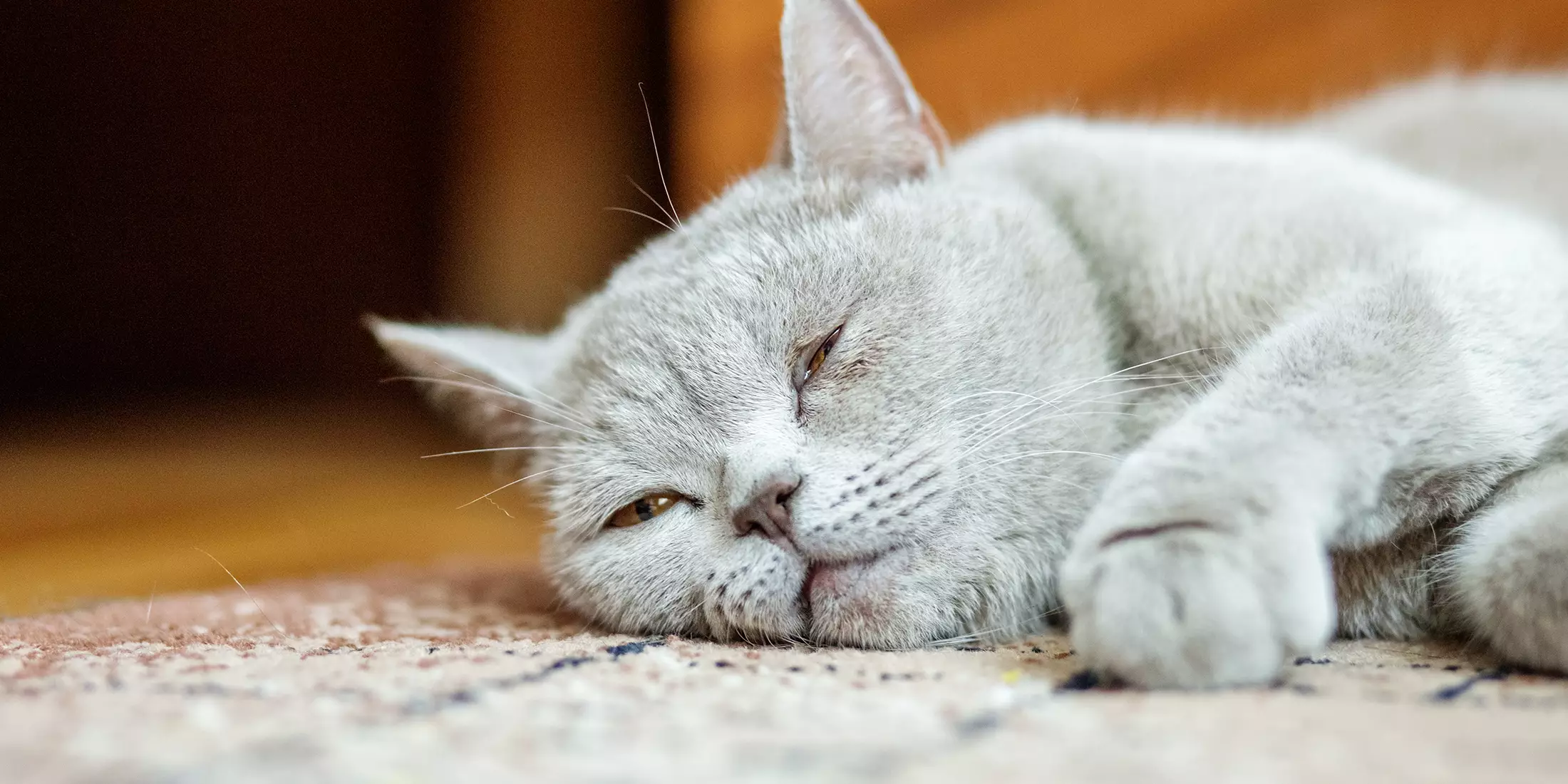What Are the Causes of Blood in Cat Urine?
Contents of Article
- What is Hematuria?
- Feline Idiopathic Cystitis: Leading Cause of Blood in Cat Urine
- Feline Lower Urinary Tract Disease (FLUTD): A Common Cause of Bloody Urine in Cats
- Causes of Bloody Urine: Urinary Tract Infections
- Exposure to Rat Poison Is A Rare Cause of Blood in Cat Urine
- Bleeding Disorder: Other Causes of Hematuriain Cats
- Bladder Tumor- A Rare Cause of Blood in Cat Urine
Any owner would be alarmed at the site of blood in cat urine. You are no exception either. It’s incredibly upsetting to see blood drops on the bedding, in the litter box or even on the floor. Although there are many causes of bloody urine in cats, the first step is to see a veterinarian.
The primary causes of hematuria or bloody urine may include
- Feline Lower urinary tract disease
- Urinary tract infection
- Feline idiopathic Cystitis
- Trauma
What is Hematuria?
Hematuria is the medical condition meaning blood in cat urine. In other words, it is the presence of red, pink, black, or brown urine. A urinalysis helps to determine the cause of blood in urine while its treatment needs urgent attention. Blood tests are generally the best way to confirm the real cause of the problem and to rule out a bleeding or clotting disorder.
Feline Idiopathic Cystitis: Leading Cause of Blood in Cat Urine
A cat suffering from cystitis faces an enhanced risk of the urinary bladder inflammation. As a result, she often experiences increased frequency of urination. This is one of the most common reasons for bloody urine in cats. Also known as feline idiopathic cystitis, interstitial cystitis refers to a collection of signs related to the irritation and inflammation of the lower urinary tract, which includes the urethra and bladder.
Some of the most common symptoms include bloody urine, urinary abnormalities, inappropriate elimination, crystals in urine samples, and concentrated urine. Defective bladder lining, stress, neurogenic inflammation, and abnormal stress response are some of the causes of feline idiopathic cystitis.
The best approach to managing the condition is to follow a multimodal treatment course, which focuses on diet management, hydration therapy, and increasing canned food intake, all of which decrease the concentration of urine. The focus of the therapy is to encourage the kitty to drink and urinate frequently, reduce stress by identifying stress triggers, and environmental modification.
Feline Lower Urinary Tract Disease (FLUTD): A Common Cause of Bloody Urine in Cats
It is a disease denoting infectious conditions affecting a cat’s urinary bladder and lower urinary tract. In an affected kitty, there is crystal formation in the urine, which may aggregate and turn into stones. This could result in serious complications for the kitty in the form of urinary blockage. If left untreated, the condition may become potentially fatal, as the blockage prevents a cat from urinating. As a result, she faces the risk of poisoning from her own toxins.
Symptoms of FLUTD:
- Bloody urine
- Painful urination
- Leakage
- Straining to urinate
- Urinating out of her litter box
- Licking her own genitals
- Loss of appetite
- Vomiting
- Lethargy
Timely treatment can make all the difference in this condition. Immediately bring your kitty to the vet if you spot any such symptoms of blood in cat urine.
If bladder stones are detected, they are generally removed using a special diet. Some bladder stones require surgical removal.
If a kitty develops a blocked urethra, she needs immediate medical attention to remove the blockage. Typically, a vet may administer a short-acting general anesthesia to flush out the urethra.
Causes of Bloody Urine: Urinary Tract Infections
A kitty with a urinary tract infection associates their litter box with pain and therefore, tends to urinate outside of it or in the bath tub. The cool surface of a bath tub seems to provide them with relief from the burning and itching sensations near the genitals. A cat with urinary tract infection is often found licking genitals and experiences painful urination and blood in urine, besides urinating at odd places.
Adult cats with decreased kidney function may suffer from a bacterial urinary tract infection, resulting in blood-tinged urine. The infection may involve either one or both kidneys or impact the bladder alone. In cats with a kidney infection, weight loss, blood in the urine, and a poor appetite are common symptoms.
Some other signs of infection include straining to urinate, increased the urge to urinate, and greater thirst.
An antibacterial therapy is the most prescribed treatment method for a kitty suffering from a bacterial infection.
Exposure to Rat Poison Is A Rare Cause of Blood in Cat Urine
If you can see signs of bloody urine in your kitty but there are no symptoms of a urinary tract infection, it could be a case of exposure to rodenticides. Bleeding problems are common in some pets exposed to rodent poison because these poisonous products are meant to cause rodents to bleed to death.
If your kitty shows any such signs, the vet may put her on Vitamin K therapy, which will help in blood clotting.
Bleeding Disorder: Other Causes of Hematuriain Cats
Some cats suffer from bleeding disorders, which may be due to a clotting deficiency. As a result, they have poorly functioning blood platelets. This may lead to unexplained bleeding episodes in cats. Some of the symptoms of internal bleeding include difficulty breathing, bloody vomit, blood in the urine or stools, and abnormal heart rhythm while excessive thirst is visible. The vitamin K deficiency may be the underlying cause of the coagulation factor deficiency.
The vet may prescribe vitamin K supplementation therapy.
Bladder Tumor- A Rare Cause of Blood in Cat Urine
Bladder tumors aren’t too common in cats. However, older or adult cats may suffer from transitional cell carcinoma. Unfortunately, the symptoms become apparent when the disease is quite advanced. The surgical removal of the tumor is the only option when detected early. Chemotherapy may help shrink the tumor size and improve the symptoms of pain in cats while some kitties with a bladder tumor respond well to non-steroidal anti-inflammatory drugs.
These are many possible causes of blood in cat urine and it needs immediate treatment. Therefore, if you spot any signs of bloody urine, immediately seek a proper vet evaluation. It could be a sign of urinary blockage in males, which is an emergency. In that case, the condition of male cats can progressively worsen within hours. In conclusion, a timely visit to the vet may save your furry friend’s life.







